Today Current Affairs: 31st July 2021 for UPSC IAS exams, State PSC exams, SSC CGL, State SSC, RRB, Railways, Banking Exam & IBPS, etc
Table of Contents
The Inland Vessels Bill 2021:

The Inland Vessels Bill 2021 was passed in Lok Sabha.
- It replaces the Inland Vessels Act, 1917. The Bill seeks to introduce a uniform regulatory framework for inland vessel navigation across the country.
- Mechanically propelled inland vessels: The Bill defines such vessels to include ships, boats, sailing vessels, container vessels, and ferries.
- The central government will prescribe the: (i) classification, (ii) standards of design, construction, and crew accommodation, and (iii) type and periodicity of surveys, for these vessels.
- Certificates: To operate in inland waters, all such vessels must have a certificate of survey, and a certificate of registration. Vessels with Indian ownership must be registered with the Registrar of Inland Vessels (appointed by the state government).
- Insurance: The vessels must also have an insurance policy to cover liability for death, injury, or damage caused due to the usage of the vessel (including accidental pollution).
- Navigation safety: Such vessels will be required to follow certain specifications for signals and equipment to ensure navigation safety, as specified by the central government.
- Inquiry into accidents: All accidents aboard such vessels must be reported to the head officer of the nearest police station, as well as to a state government appointed authority.
- Manning requirements: The central government will prescribe the minimum number of people that vessels must have, for various roles. Violating these requirements will attract a penalty of up to Rs 10,000 for the first offence, and Rs 25,000 for subsequent offences.
- Prevention of pollution: Vessels will discharge or dispose sewage, as per the standards specified by the central government. State governments will grant vessels a certificate of prevention of pollution, in a form as prescribed by the central government.
- Development fund: The Bill provides for a development fund which will be utilised for various purposes including: (i) emergency preparedness, (ii) containment of pollution, and (iii) boosting inland water navigation. Each state will constitute such a development fund.
- Non-mechanically propelled inland vessels: The Bill empowers state governments to delegate certain functions related to non-mechanically propelled inland vessels to their local governments.
Chandrayaan-3
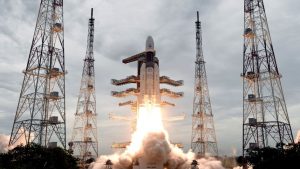
Indian Space Research Organisation (ISRO) is likely to launch India’s third lunar mission ‘Chandrayaan-3’ in the third quarter of 2022.
- Chandrayaan-3 is a lander-and rover-specific mission, which will demonstrate India’s capability of soft landing on a celestial body, with the rover then communicating with Earth via the existing orbiter from Chandrayaan-2 and taking images 100 km from Moon’s orbit.
- The orbiter has an estimated lifespan of seven years.
- The unique exploration of Chandrayaan-3 aims at studying not just one area of the Moon but all the areas combining the exosphere, the surface as well as the sub-surface in a single mission.
- The Lunar South pole is especially interesting because the lunar surface area that remains in shadow is much larger than that at the North Pole. Further, there could be a possibility of the presence of water in permanently shadowed areas around it.
- In addition, the South Pole region has craters that are cold traps and contain a fossil record of the early Solar System.
AERA Amendment Bill, 2021:
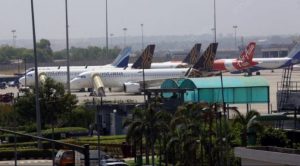
The Lok Sabha passed the Airports Economic Regulatory Authority of India (AERA) Amendment Bill, 2021.
- It was first introduced in March 2021 and subsequently referred to a parliamentary standing committee on transport, tourism and culture, which approved it without any changes.
- It seeks to amend the Airports Economic Regulatory Authority of India Act, 2008.
Major Provisions:
- It proposes to amend the definition of major airport to include a group of airports.
- The 2008 Act designates an airport as a major airport if it has an annual passenger traffic of at least 35 lakh.
- The central government may also designate any airport as a major airport by a notification.
- Tariff: It will allow AERA to regulate tariff and other charges for aeronautical services for not just major airports with annual passenger traffic of more than 35 lakh, but also a group of airports.
- The government will be able to club profitable and non-profitable airports as a combination/package to bidders to make it a viable combination for investment under PPP (Public-Private Partnership) mode.
Factoring Regulation (Amendment) Bill, 2021:

Rajya Sabha has passed the Factoring Regulation (Amendment) Bill, 2021 to bring changes in the legislation aimed at helping the Micro, Small and Medium Enterprises (MSME) sector.
- It has incorporated many suggestions from the UK Sinha Committee.
Key Provisions of the Bill:
- Change in the Definitions:
- It amends the definitions of “receivables”, “assignment”, and “factoring business” to bring them at par with international definitions.
- Relaxation to NBFCs’ Factoring Threshold:
- The bill seeks to amend the Factoring Regulation Act, 2011 to widen the scope of entities which can engage in factoring business.
- The current law which gave the Reserve Bank of India authority to allow non-bank finance companies to remain in factoring business only if it was their principal business.
- That is, more than half of assets were to be deployed and income earned from factoring business.
- The Bill removes this threshold and opens up the opportunity in this business to more non-bank lenders at a time small businesses are facing financial stress.
- TReDS to Register Charges:
- The Bill states that where trade receivables are financed through Trade Receivables Discounting System (TReDS), the details regarding transactions should be filed with the Central Registry by the concerned TReDS, on behalf of the factor.
- TReDS is an electronic platform for facilitating financing of trade receivables of MSMEs.
RBI to Regulate: - It empowers Reserve Bank of India (RBI) to make regulations for granting registration certificates to a factor, filing of transaction details with the Central Registry and all other matters.
- No time-bound Registration:
- It removes the 30-day time period for the factors to register the details of every transaction entered by them.
- The registering authority for such transactions is the Central Registry setup under the Securitisation and Reconstruction of Financial Assets and Enforcement of Security Interest (SARFAESI) Act, 2002.
Thirugnana Sambandar:

The National Gallery of Australia (NGA) announced that it would return 14 works of art from its Asian art collection to India.
The works being returned are:
- dancing child-saint Sambandar of 12th century belonging to Chola dynasty,
- processional standard [alam], from Hyderabad,
- arch for a Jain shrine (11th-12th century), seated Jina, 1163 from Mount Abu region, Rajasthan,
- the divine couple Lakshmi and Vishnu [Lakshmi Narayana] (11-12th century), and
- Durga Mahisasuramardini, from Gujarat.
Sambandar, also referred to as Thirugnana Sambandar was a Saiva poet-saint of Tamil Nadu who lived sometime in the 7th century CE. He was a contemporary of Appar, another Saiva poet-saint.
- He was a child prodigy who lived just 16 years. According to the Tamil Shaiva tradition, he composed an oeuvre of 16,000 hymns in complex meters, of which 383 (384) hymns with 4,181 stanzas have survived.
- These narrate an intense loving devotion (bhakti) to the Hindu god Shiva.
- The surviving compositions of Sambandar are preserved in the first three volumes of the Tirumurai, and provide a part of the philosophical foundation of Shaiva Siddhanta.
Project BOLD In Jaisalmer:
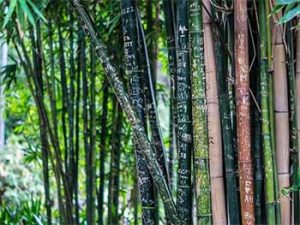
The project was launched by Khadi and Village Industries Commission (KVIC) & BSF have launched Project BOLD in Jaisalmer to Prevent Desertification and Support Rural Economy. Under this, they have planted 1000 bamboo saplings.
- Recently KVIC launched Project BOLD in the tribal village of Nichla Mandwa in Udaipur, Rajasthan.
- Under this, 5000 saplings of special bamboo species – BambusaTulda and BambusaPolymorpha specially brought from Assam – were planted in vacant arid Gram Panchayat land.
- With this, KVIC created a world record of planting the highest number of bamboo saplings on a single day at one location.
- BOLD stands for Bamboo Oasis on Lands in Drought.
- Launched by Khadi and Village Industries Commission (KVIC).
- The initiative has been launched as part of KVIC’s “Khadi Bamboo Festival” to celebrate 75 years of independence “Azadi ka Amrit Mahotsav”.
- Objectives: To create bamboo-based green patches in arid and semi-arid land zones, To reduce desertification and provide livelihood and multi-disciplinary rural industry support.
EOS-03:
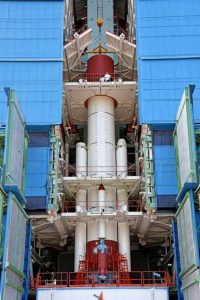
The Indian Space Research Organisation (ISRO) is scheduled to launch the geo-imaging satellite for earth observation EOS-03 in the third quarter of 2021.
- EOS-03 It is an earth observation satellite.
- Last year, ISRO launched EOS-01 which is nothing but another Radar Imaging Satellite (RISAT) that will work together with RISAT-2B and RISAT-2BR1.
- It would enable near real-time monitoring of natural disasters like floods and cyclones.
- It is capable of imaging the whole country four-five times daily.
- It would also enable monitoring of water bodies, crops, vegetation condition, forest cover changes.
- Radar imaging is unaffected by weather, cloud or fog, or the lack of sunlight. It can produce high-quality images in all conditions and at all times.
Cabinet Approves Multilateral MoU Signed By IFSCA::

The Cabinet has approved a multilateral MoU signed between the International Financial Services Centres Authority (IFSCA), International Organization of Securities Commissions (IOSCO), and International Association of Insurance Supervisors (IAIS).
- In 2002 IOSCO adopted a multilateral memorandum of understanding (IOSCO MMoU) designed to facilitate crossborder enforcement and exchange of information among the international community of securities regulators.
- Then in 2005 IOSCO MMoU become the benchmark for international cooperation among securities regulators.
About IOSCO:
- Formed in 1983, it is an association of organizations that regulate the world’s securities and futures markets.
- Members are typically primary securities and/or futures regulators in a national jurisdiction or the main financial regulator from each country.]
- Headquarters: Madrid, Spain.
International Association of Insurance Supervisors (IAIS):
- It is a voluntary membership organization of insurance supervisors from over 190 jurisdictions, constituting 97% of the world’s insurance premiums.
- It is the international standards-setting body for the insurance sector.
- It was established in 1994 and operates as a verein, a type of non-profit organisation under Swiss Civil Law.
- The IAIS is hosted by the Bank for International Settlements (BIS).
The Commissions Of Inquiry Act, 1952:

The West Bengal government has set up a Commission of Inquiry (Lokur Commission), under the 1952 Act, to look into the alleged surveillance of phones using the Pegasus spyware developed by the Israeli cyber-intelligence company NSO Group.
- The Commission will look into the alleged breach of privacy of several individuals.
- While both central and state governments can set up such Commissions of Inquiry, states are restricted by subject matters that they are empowered to legislate upon.
- If the central government set up the commission first, then states cannot set up a parallel commission on the same subject matter without the approval of the Centre.
- But if a state has appointed a Commission, then the Centre can appoint another on the same subject if it is of the opinion that the scope of the inquiry should be extended to two or more states.
International Tiger Day:

At the virtual meeting celebrating International Tiger Day (29th July), Prime Minister of India reiterated India’s commitment to ensuring safe habitats for its tigers and nurturing tiger-friendly eco systems.
- Also, at this meeting, 14 Tiger Reserves in India received the accreditation of the Global Conservation Assured|Tiger Standards (CAITS).
Conservation Status of Tiger:
- Indian Wildlife (Protection) Act, 1972: Schedule I
- International Union for Conservation of Nature (IUCN) Red List: Endangered.
- Convention on International Trade in Endangered Species of Wild Fauna and Flora (CITES): Appendix I.
India’s Tiger Conservation Status:
- India is home to over 70% of the tiger population globally.
- India is home to 51 tiger reserves spread across 18 states and the last tiger census of 2018 showed a rise in the tiger population.
- India achieved the target of doubling the tiger population four years ahead of schedule (2022) of the St. Petersburg Declaration on tiger conservation.\
- India’s strategy of tiger conservation attaches topmost importance to involving local communities.
Conservation Assured|Tiger Standards (CA|TS).:
- CA|TS has been agreed upon as an accreditation tool by the global coalition of Tiger Range Countries (TRCs) and has been developed by tiger and protected area experts.
- There are currently 13 tiger range countries – India, Bangladesh, Bhutan, Cambodia, China, Indonesia, Lao PDR, Malaysia, Myanmar, Nepal, Russia, Thailand and Vietnam.
- CA|TS is a set of criteria which allows tiger sites to check if their management will lead to successful tiger conservation.
- It was officially launched in 2013.
- The Global Tiger Forum (GTF), an international NGO working on tiger conservation, and World Wildlife Fund India are the two implementing partners of the National Tiger Conservation Authority for CATS assessment in India.
Cloudbursts:

On July 28, at least seven people were killed, 17 injured and over 35 missing after a cloudburst hit a remote village of Jammu and Kashmir.
- Cloudbursts are short-duration, intense rainfall events over a small area.
- According to the India Meteorological Department (IMD), it is a weather phenomenon with unexpected precipitation exceeding 100mm/h over a geographical region of approximately 20-30 square km.
- A study published last year studied the meteorological factors behind the cloudburst over the Kedarnath region.
- They analysed atmospheric pressure, atmospheric temperature, rainfall, cloud water content, cloud fraction, cloud particle radius, cloud mixing ratio, total cloud cover, wind speed, wind direction, and relative humidity during the cloudburst, before as well as after the cloudburst
- A 2017 study of cloudbursts in the Indian Himalayas noted that most of the events occurred in the months of July and August.
All India Quota (AIQ) Scheme For Undergraduate And Postgraduate Medical / Dental Courses:

Ministry of Health and Family Welfare has taken a decision for providing 27% reservation for OBCs and 10% reservation for Economically Weaker Section (EWS) in the All India Quota (AIQ) Scheme for undergraduate and postgraduate medical / dental courses (MBBS / MD / MS / Diploma / BDS / MDS) from the current academic year 2021-22 onwards.
- The All India Quota (AIQ) Scheme was introduced in 1986 under the directions of the Supreme Court to provide for domicile-free merit based opportunities to students from any State to aspire to study in a good medical college located in another State.
- All India Quota consists of 15% of total available UG seats and 50% of total available PG seats in government medical colleges.
- Initially, there was no reservation in AIQ Scheme up to 2007. In 2007, the Supreme Court introduced reservation of 15% for SCs and 7.5% for STs in the AIQ Scheme.
- When the Central Educational Institutions (Reservation in Admission) Act became effective in 2007 providing for uniform 27% reservation to OBCs, the same was implemented in all the Central Educational Institutions viz. Safdarjung Hospital, Lady Harding Medical College, Aligarh Muslim University and Banaras Hindu University etc.
- However, this was not extended to the AIQ seats of State medical and dental colleges.
I-MESA Scheme:
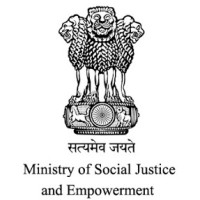
The Ministry of Social Justice and Empowerment has formulated a scheme, namely Information-Monitoring, Evaluation and Social Audit (I-MESA) in FY 2021-22.
- Under this scheme, Social Audits are to be conducted for all the schemes of the Department starting FY 2021-22.
- These social audits are done through Social Audit Units (SAU) of the States and National Institute for Rural Development and Panchayati Raj.
- Social Audit is the audit of a scheme jointly by the Government and the people, especially by those who are affected by the scheme or its beneficiaries.
- Benefits: It is a powerful tool to promote transparency, accountability and people’s participation in the schemes meant for them.
- A social audit helps to narrow gaps between vision/goal and reality, between efficiency and effectiveness.
- Status: Mahatma Gandhi National National Rural Employment Guarantee Act (MGNREGA) was the first Act to mandate Social Audit by the Gram Sabha of all the projects taken up in the Gram Panchayat.
- Most States have set up an independent Social Audit Unit (SAU) and some have even begun to facilitate Social Audit in other programmes, including Pradhan Mantri Awas Yojana, National Social Assistance Programme, Midday Meal Scheme and Public Distribution System.
Deposit Insurance And Credit Guarantee Corporation (Amendment) Bill, 2021:

The Union Cabinet has approved the Deposit Insurance and Credit Guarantee Corporation (Amendment) Bill, 2021 and has been introduced in Parliament’s monsoon session.
- Deposit Insurance Credit Guarantee Corporation (DICGC) is a wholly-owned subsidiary of the Reserve Bank of India (RBI).
- It provides deposit insurance that works as a protection cover for bank deposit holders when the bank fails to pay its depositors.
- It protects depositors’ money kept in all commercial and foreign banks located in India; central, state, and urban co-operative banks; regional rural banks; and local banks, provided that the bank has opted for DICGC cover.
- The agency’s operations are performed as per the Deposit Insurance and Credit Guarantee Corporation Act, 1961 and The Deposit Insurance and Credit Guarantee Corporation General Regulations, 1961.
Amendment bill:
- The Bill provides account holders security of their money by allowing access to up to Rs 5 lakh within 90 days of a bank coming under a moratorium.
- Under the latest amendment in the DICGC Bill, 98.3% of all deposits will be covered and in terms of deposit value, 50.9% of deposits will be covered. While the Global deposit value is only 80% of all deposit accounts and covers only 20-30% of the deposit value.
The Maharashtra Bhushan Puraskar:

The Maharashtra Bhushan Selection Committee chaired by Chief Minister Uddhav Thackeray unanimously selected legendary playback singer Asha Bhosle for the prestigious award.
- The Maharashtra Bhushan Puraskar will be given to legendary playback singer Asha Bhosle for the year 2021.
- The Maharashtra Bhushan is a highest civilian award presented annually by the government of Maharashtra.
- It was first awarded in 1996 to Purushottam Laxman Deshpande in the field of Literature.
- It was initially conferred in every years in the fields of Literature, Art, Sport, and Science.
- Later the fields of Social Work, Journalism, and Public Administration and Health Services were included. The award is presented for outstanding achievement in their field.




